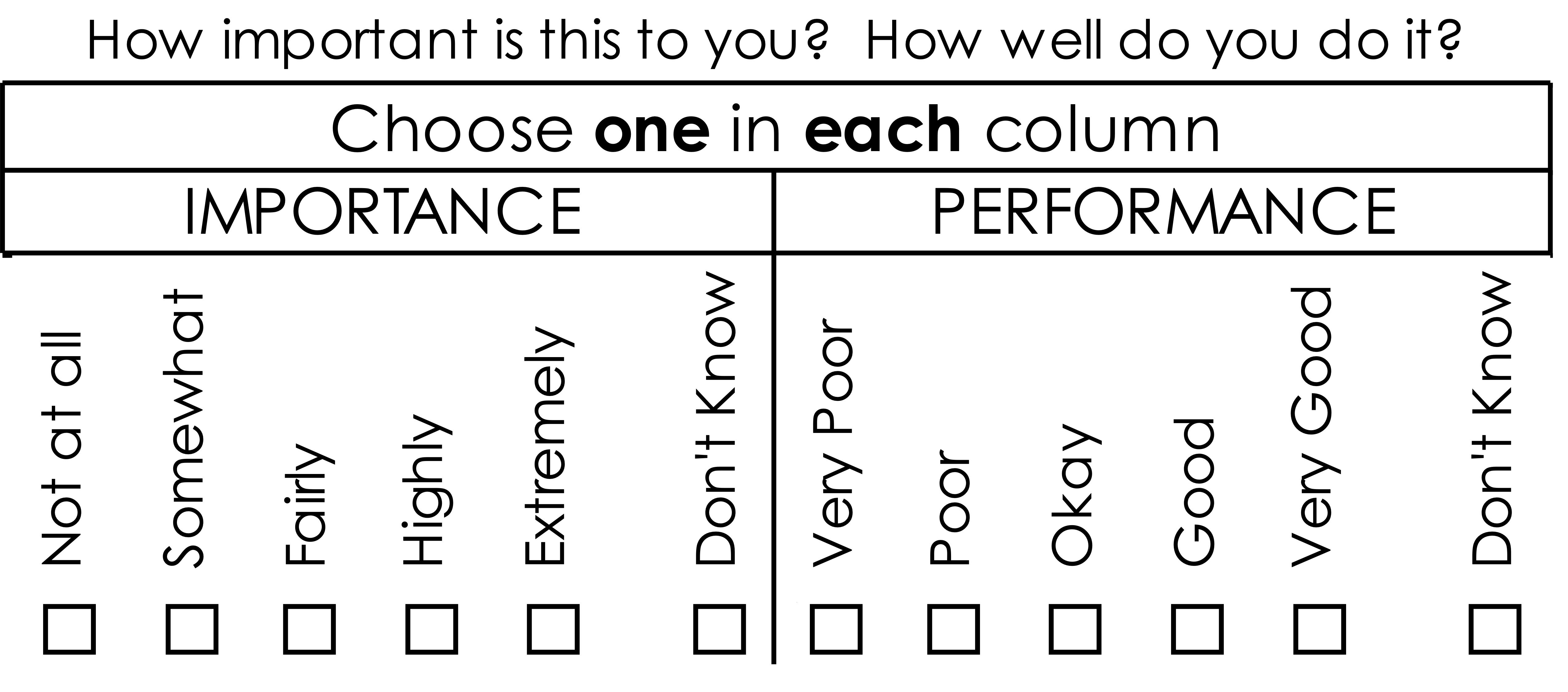Why is Failing Important? Because You Grow.
- Home
- Basic Productivity Skills
- Why Is Failing Important
Why is failing important? Because, if you pay attention to it, and learn from it, it creates growth.
Everyone fails at some point. Don't fixate on failure. If you tried and failed, that doesn't make you a failure. You are simply a leader who tried something that didn't work out. You learned and won't do it again.
Too many people see failure as something to be feared rather than an important – and sometimes essential – building block for success.

People who embrace failure have greater knowledge,
deeper experience and clearer vision of what success looks like. The education mistakes and failure have given them is invaluable.
Don't hire failures who have given up on trying. Hire tryers who haven't given in to failing. Learning from mistakes creates stronger leaders. These people will take your project, program or cause further with greater energy and clearer vision.
Why is failing important? Because what you refer to as failure may be the very prerequisite to success that comes just before the breakthrough you dream about.
"They (entrepreneurs) are not deterred by problems, mistakes, or errors. Why? Because they don't see setbacks as failures. They recognize that three steps forward and two steps back still equals one step forward. As a result, they overcome the average and become achievers."
John Maxwell, Failing Forward
Why is Failing Important? Five Days of Coaching.

DAY ONE
Make a list of those things you consider failures. Alongside each failure, note what you learned and how that prepared you for some future gain, advancement or insight that came about. Embrace those and future failures as stepping stones to success.
The Coach asks:
- This should be an interesting exercise. Make a list of the failures that you learned from. How did each failure and your learning from it help you move forward better, more strongly, or with greater insight, decision-making and action?
- Tough as it was, can you now look back and be thankful for what you learned from the failure? If it's still difficult, endeavor to find the core thing you have learned from each.
- How have "failures," small or large, formed you into the person you are today? In light of this, answer this question. Why is failing important?
- How tolerant are you of other people's failures?
DAY TWO
Yesterday you listed the elements of an incredible education. Take that same list of failures, title it “Lessons Learned, My Incredible Education”. This is the learning you will apply in the workplace today and tomorrow. Think about how you will do this. How will you apply what you learned to your work today and incorporate it into your attitude for the rest of your life?
The Coach asks:
- Take the list of your own failures and what you learned from each, and create a document titled "Lessons Learned, My Incredible Education." Review how you have and how you can incorporate this learning in what you are doing today.
- Of what you have learned, how willing are you to be transparent about some of your own failures, in order to help others as they face the same thing, small or large, in day to day jobs or in the larger context of life?
- What has been your traditional attitude about failure? How is it shifting?
- How can your team benefit from your experience with failure? How can you help them address the question, "why is failing important?"
DAY THREE
How do you treat people who have failed? Can you influence the person who has failed and is discouraged, but is willing to keep going? What about the person who has failed and given up? What can you do that will bring something good out of something bad? Good results may not come in the short term but in the longer term.
The Coach asks:
- Today take some time to think some more about your own attitudes to those who have failed. How have you treated them? Did you overlook failure? Come down hard on it? Show mercy? Show none? What alternate attitude or action might have been more helpful?
- In your team, what can be done to bring something good out of something bad? Mistakes will be made. Failure is inevitable from time to time. It may be something as small as forgetting to complete a time-sensitive task, but it's a learning point. How can you leverage the inevitability of failure?
- If people fear reaction or retribution, they will try sweep their failures under the carpet. How can you avoid this, without spending everyone's time looking for failure? How do you support a "let's try get it right the first time" attitude, while recognizing something might go wrong?
- How are you shifting your own thinking about failure?
DAY FOUR
Create a strategic plan to deal with failure as it arises. What immediate steps need to be taken? What immediate lessons can be gleaned and acted upon?
The Coach asks:
- Failure happens. If we acknowledge it in a safe environment and learn from it, it can be valuable. Create a plan for dealing with failure when it happens. What seems more important to you, a plan for an individual, or a plan for the group? Perhaps create a plan for each.
- What's the benefit of creating a culture that embraces and learns from individual or team failures without judgment?
- Think of one instance where a plan to deal with failure would have changed the dynamic for the better with your team? How can you communicate this with the team in a way that the benefits of dealing with the failure up front become apparent.
- Take some time to look into "imposter syndrome," and see what you find. How does this knowledge influence your thinking?
DAY FIVE
Think about creating a 'no-fail' environment in your organization. This means that failure, when it happens, is immediately turned into a learning opportunity and is used as a catalyst for growth toward greater successes. That may be the biggest answer to the question, "Why is failing important?." Are there degrees of failure that need to be treated in different ways?
The Coach asks:
- Think some more about creating a "no-fail" environment. Probably 99% of "fails" will fit. What concrete actions will you take? What structure will accommodate this? How will you influence people's attitude toward seeing failure as an opportunity to learn and grow together?
- How will you implement this learning culture? How will you overcome those who say, "I feel like a failure?"
- There are degrees of failures. Some create huge problems for a lot of people. Others are more personal and minor in impact. How does your "system" make it okay to discuss both the failure, the learning, and the action plan coming out of it?
- You've probably heard of "fail fast fail often." If at all, how might this thinking apply to any of your projects currently underway?
Spiritual Reflection for Christian Leaders

As a Christian Executive Leadership Coach I encourage Christian leaders to reflect on God's Word to add to their wisdom.
- Pr 11:2 When pride comes, then comes disgrace, but with humility comes wisdom.
- Php 3:13,14 Brothers and sisters, I do not consider myself yet to have taken hold of it. But one thing I do: Forgetting what is behind and straining toward what is ahead, I press on toward the goal to win the prize ...
- Ps 54:4 Surely God is my help; the Lord is the one who sustains me.
- Is 43:18,19 Forget the former things; do not dwell on the past. See, I am doing a new thing.
- Pr 26:11,12 As a dog returns to its vomit, so fools repeat their folly. (Don't make the return trip to the same failure.)
- Pr 24:16 For though the righteous fall seven times, they rise again.
- Ps 37:23,24 The Lord makes firm the steps of the one who delights in him; though he may stumble, he will not fall, for the Lord upholds him with his hand.
If you are a leader, executive, or senior level professional looking to work with a Christian Executive Coach, I invite you to connect with me here.
If appropriate, we can meet by phone or Zoom to discuss your situation.
Record Your Progress
This is your opportunity to track your progress. Start by asking yourself how important this practice is to you? Record the importance as - not at all, somewhat, fairly, highly or extremely.
Now next to it ask yourself how well you carry out this practice. Record your performance as - very poor, poor, okay, good or very good.

The things we track, we pay attention to. Across time, come back and record your new results. You will find that as you are intentional about making improvements, you will bump your "score" up higher.
This is significant. Don't miss the opportunity to acknowledge your success, and use it as a springboard for making even further gain.
Notes
Let's face it. Nobody wants to fail. Nobody wants others to see that we have made a mistake or mucked up. But ... it's part of life. Failure will happen. If we learn from it, it makes us stronger and takes us further.
And that may be something we'd like for everybody to see.
Contact me here Privacy Policy
© G.E.Wood and Associates. All Rights Reserved in all media.
G.E. Wood and Associates is an international coaching firm registered in Ontario, Canada
142 Pratt Crescent, Gravenhurst, Ontario, Canada, P1P 1P5